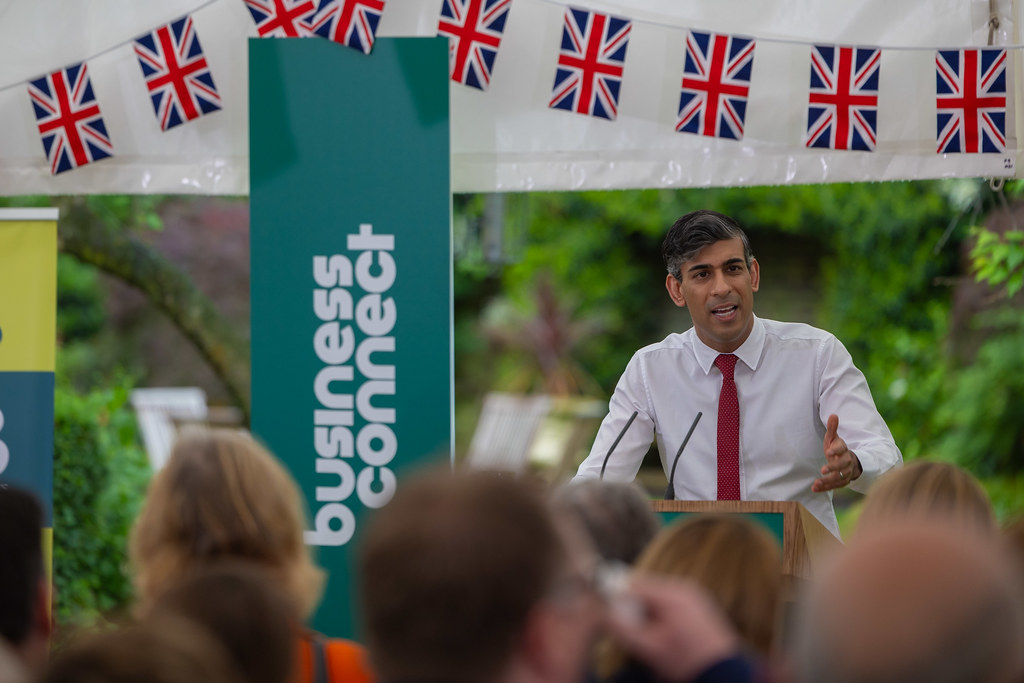Sunak’s spokesperson has insisted ministers were not obliged to accept recommendations from the independent Migration Advisory Committee, which cautioned against closing the scheme in a report…reports Asian Lite News
Prime Minister Rishi Sunak is still looking to restrict the UK’s graduate visa scheme to cut legal migration to Britain, even after he was strongly advised by the government’s migration adviser not to abolish the programme.
Sunak’s spokesperson has insisted ministers were not obliged to accept recommendations from the independent Migration Advisory Committee, which cautioned against closing the scheme in a report on Tuesday.
“British students should be the priority for our education system and universities and student visas must be used for education, not immigration,” the spokesperson said.
The MAC’s report said the government should retain the “graduate visa route” policy, which allows overseas students to spend two years working in the UK after graduation.
The committee warned cutting overseas student numbers would cause universities “substantial financial difficulty” and could lead some to “fail”.
The MAC’s recommendation followed an emergency review of the “graduate visa route” policy commissioned by home secretary James Cleverly in response to fears it was being used as a backdoor for immigration.
The report found “no evidence” of any deliberate and widespread abuse of the graduate route.
It came as Sunak faces calls from the right flank of his party to take a tougher line on legal migration, which reached a record net high of 745,000 in 2022 and remained high last year.
Polls invariably suggest migration is one of the top three issues concerning voters ahead of the general election, expected later this year. Sunak’s Conservatives are trailing Labour heavily in polling.
Senior Tories have been divided over whether to restrict the route. Chancellor Jeremy Hunt and education secretary Gillian Keegan have privately lobbied to retain the scheme in light of the severe financial strain many universities are under, said people familiar with the matter.
But former migration minister Robert Jenrick and former health minister Neil O’Brien, who released a scathing report attacking the Tory government’s legacy on migration last week, criticised the MAC’s findings.
Both former ministers argued on social media platform X that the report was guided by misleading parameters set by the government.
This included not asking the MAC to review the government’s goal of attracting 600,000 foreign students per year and asking it to assess the extent of abuse in the visa system, rather than the social and economic impact of this type of migration. Jenrick and O’Brien reiterated calls for the graduate route to be scrapped immediately.
The MAC warned putting further restrictions on the route — on top of a recent ban on international postgraduate students bringing family members to the UK — would lead to job losses, course closures and cuts to research, as well as the risk “that some institutions would fail”.
Any policy change intended to reduce student numbers would also need to explain “how the financial consequences for the sector would be addressed”, the committee stressed.
Although it found no deliberate abuse of the system, the MAC did raise concerns about the use of recruitment agents by universities and suggested the government consider introducing “mandatory requirements” on recruiters in order to ensure good practice.
Cleverly commissioned the MAC’s review after applications to lower-ranked universities more than doubled between 2018 and 2020.
The MAC found government policies to reduce migration introduced this year, including restrictions on postgraduate dependant visas, were having a negative impact on international recruitment.
Industry figures cited in the report indicated the number of international students paying a deposit to study in the UK had fallen 57 per cent in May compared with a year earlier.
‘Graduate Route visa, dominated by Indians’
A report issued by the British government reveals that a post-study visa programme, which is dominated by Indian graduates, is helping UK universities recover from financial losses and expand research opportunities. The Graduate Route visa, introduced in July 2021, allows international students to remain in the UK for up to two years (three years for PhD graduates) after completing their studies.
The government was reviewing the Graduate Route visa and that caused consternation among the international student community. In fact, applications to UK universities were dropped because of the visa programme uncertainty.
Cleverly assigned the independent Migration Advisory Committee (MAC) to review the new Graduate Route visa quickly. This visa permits international students to remain in the UK for up to two years after finishing their degree to seek employment and gain work experience.
The report suggested the government should continue the visa programme to attract “the brightest and best” international students to study in the UK.
According to the report, the top five nationalities account for nearly 75% of all Graduate Route visas with India accounting for over 40% of them. Indian nationals made up a higher proportion of Graduate Route visas (42%) compared to their proportion of student visas (26%).
ALSO READ-Country at crossroads, says Sunak

